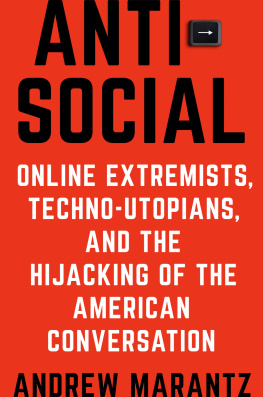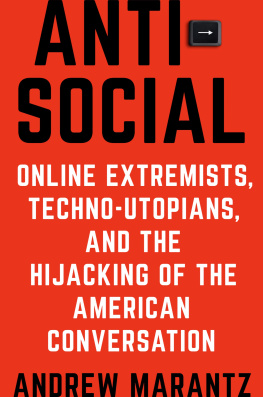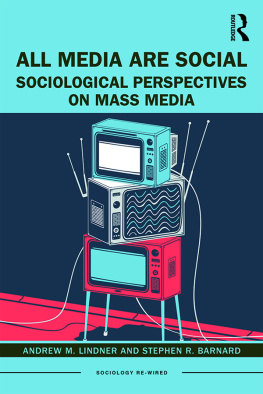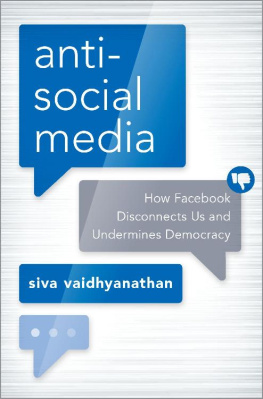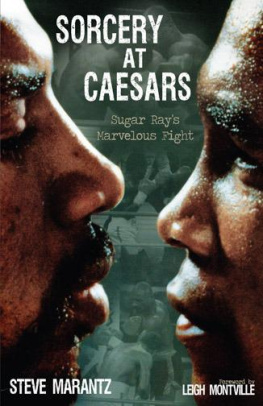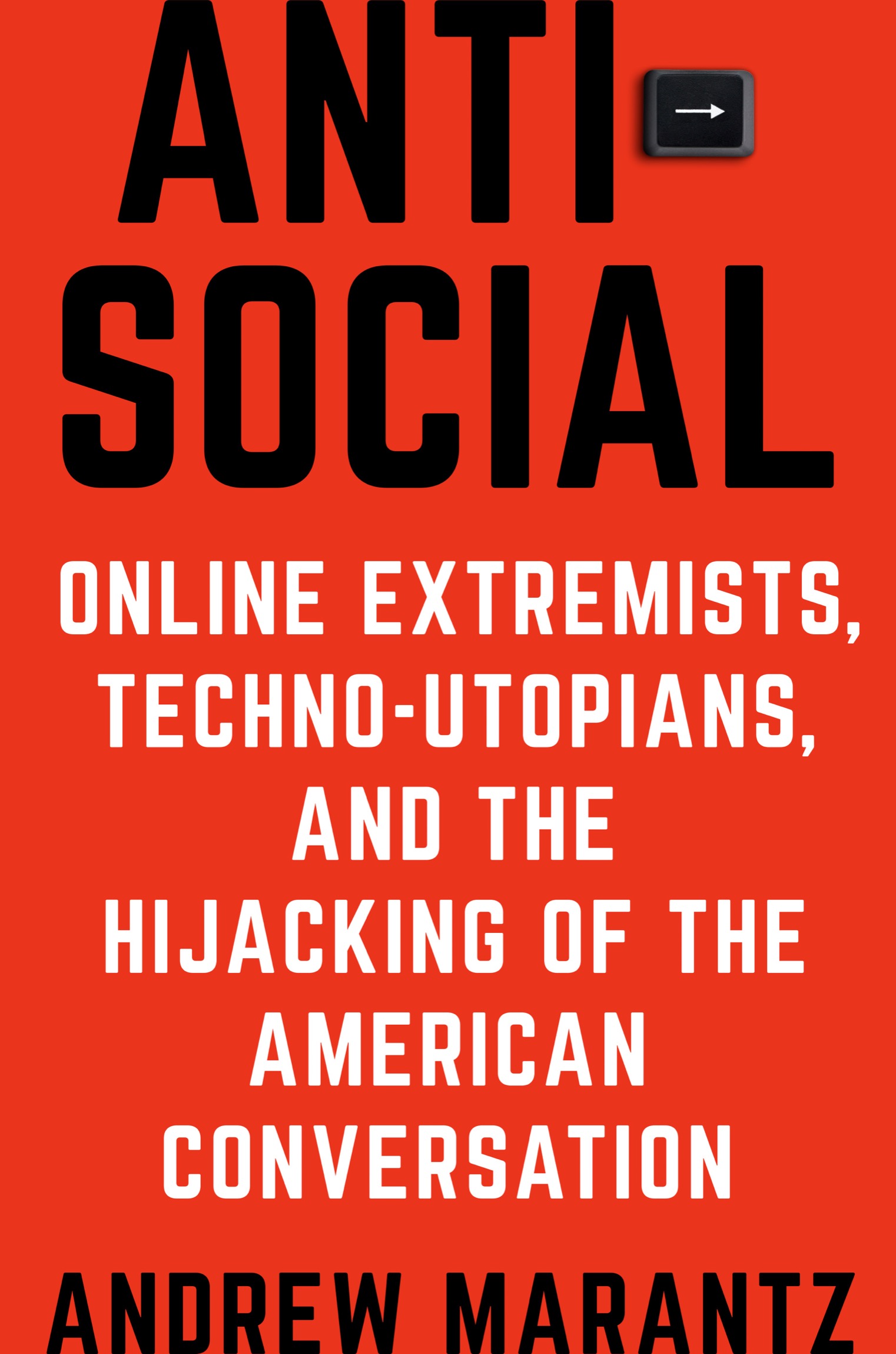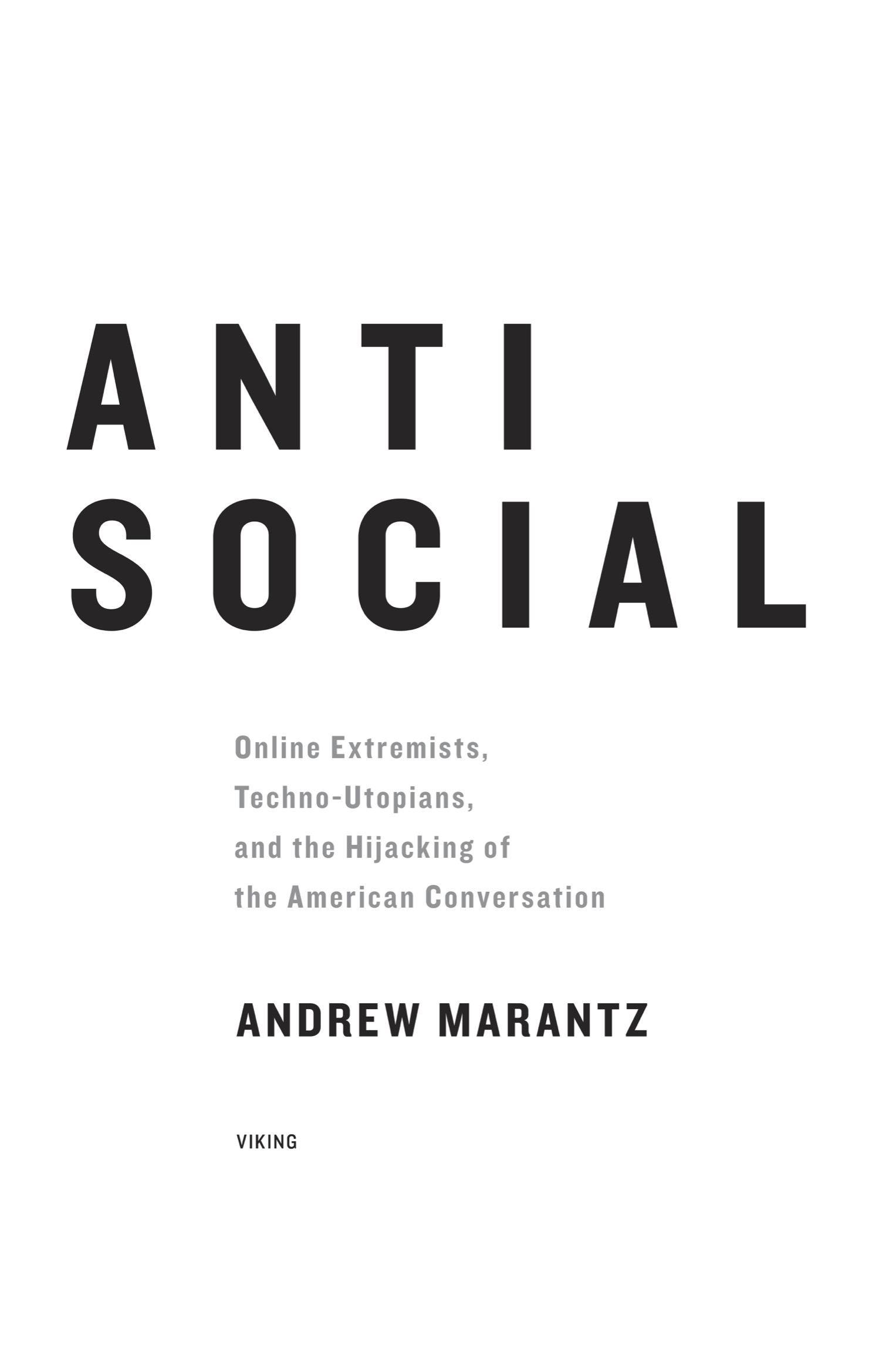VIKING
An imprint of Penguin Random House LLC
penguinrandomhouse.com
Copyright 2019 by Andrew Marantz
Penguin supports copyright. Copyright fuels creativity, encourages diverse voices, promotes free speech, and creates a vibrant culture. Thank you for buying an authorized edition of this book and for complying with copyright laws by not reproducing, scanning, or distributing any part of it in any form without permission. You are supporting writers and allowing Penguin to continue to publish books for every reader.
Portions of this work were previously published in slightly different form in The New Yorker as Trolls for Trump (October 2016), Trump and the Truth (November 2016), Trump Supporters at the DeploraBall (February 2017), Is Trump Trolling the White House Press Corps? (March 2017), An Awkward Right-Wing Dance Party (May 2017), Behind the Scenes With the Right-Wing Activist Who Crashed Julius Caesar (June 2017), Birth of a White Supremacist (October 2017), and Reddit and the Struggle to Detoxify the Internet (March 2018).
Housekeeping Observation from Cant and Wont: Stories by Lydia Davis. Copyright 2014 by Lydia Davis. Reprinted by permission of Farrar, Straus and Giroux.
ISBN 9780525522263 (hardcover)
ISBN 9780525522270 (ebook)
Penguin is committed to publishing works of quality and integrity. In that spirit, we are proud to offer this book to our readers; however, the story, the experiences, and the words are the authors alone.
While the author has made every effort to provide accurate telephone numbers, internet addresses, and other contact information at the time of publication, neither the publisher nor the author assumes any responsibility for errors or for changes that occur after publication. Further, the publisher does not have any control over and does not assume any responsibility for author or third-party websites or their content.
Some names and identifying characteristics have been changed to protect the privacy of the individuals involved.
Version_1
For LBG and the Gid
Morality, if it is to remain or become morality, must be perpetually examined, cracked, changed, made new.... Not everything that is faced can be changed; but nothing can be changed until it is faced.
James Baldwin, As Much Truth As One Can Bear
Under all this dirt
the floor is really very clean.
Lydia Davis, Cant and Wont
Contents
ANTISOCIAL, ADJ. (1797)
unwilling or unable to associate in a normal or friendly way with other people (Hes not antisocial, just shy)
antagonistic, hostile, or unfriendly toward others; menacing; threatening (an antisocial act)
opposed or detrimental to social order or the principles on which society is constituted (antisocial behavior)
Psychiatry: of or relating to a pattern of behavior in which social norms and the rights of others are persistently violated
Dictionary.com Unabridged
Based on the Random House Unabridged Dictionary, Random House, Inc. 2019
Prologue
I landed at the Bob Hope Airport in Burbank, rented a Ford sedan, and asked Google to send me southward on a semiefficient route, scenic but without too much traffic. As I drove, I listened to a nationalist motivational speaker delivering far-right talking points via livestream. I was deprived of the full effect, being unable to see his facial expressions and the comments floating up the left side of my phones screen, but I figured that the full effect was not worth dying for. Are you gonna be a passive observer in these extraordinary times, as we fight to save Western civilization, or are you gonna step up? he asked. Ive decided that Im stepping up. The 2016 presidential election was approaching, and the institutional gatekeepers in government, business, and media all agreed that the result was inevitable. The nationalist was urging his listeners to question the prevailing narrative, to think the unthinkable, to bend the arc of history. Through my windshield I could see a sliver of the Pacific, picturesque but not all that pacific.
On the Hermosa Beach boardwalk there were longboards and mirrored sunglasses and poke bowls and matcha smoothies. A small film crew from Women.com was shooting a series of woman-on-the-street interviews about sex positivity. On the beach, a crowd had gathered around a drum circle. Can you feel the Earths rhythm? one of the drummers asked, passing around a bucket for donations.
I spotted about a dozen beefy white men, dressed in T-shirts and shorts, milling around near an outdoor bar. In the middle of the scrum was the nationalist motivational speaker. Most people on the boardwalk didnt recognize him, but to his followers, both in person and on the internet, he was something of a hero, or maybe an antiheroan expert at injecting fringe ideas into mainstream discourse. A few months earlier, he had decided, based on no real evidence, that Hillary Clinton was suffering from a grave neurological condition and that the traditional media was covering it up. He turned this conjecture into a meme, which gathered momentum on Twitter, then leaped to the Drudge Report, then to Fox News, and then into Donald Trumps mouth. The nationalist had told me, All the people at each step may or may not know my name, but Im influencing world history whether they know where their ideas are coming from or not.
He was hosting what he called a free-speech happy houra meetup for local masculinists, neomonarchists, nihilist Twitter trolls, and other self-taught culture warriors. About sixty people showed up over the course of the afternoon. Some refused to call themselves alt-right, which had become, in their words, a toxic brand; others were happy to own the label. Most were white, most were nationalists, and some were white nationalistsnot the old skinhead type but the more polished, just-asking-the-question variety. For years, theyd been able to promote their agenda through social networks like Twitter and Facebook, with almost no restrictions. Now those networks were starting to crack down, banning a few of the most egregious trolls and bigots. Its straight-up thought policing, one person at the meetup said. Its 1984.
A pudgy guy with oversized sunglasses sat at a table by himself. On his T-shirt was a drawing of Harambe, a gorilla whod recently been shot to death at the Cincinnati Zoo. The incident had resulted in real internet outrage, followed by satirical internet outrage, followed by absurdist metacommentaries on the phenomenon of internet outrage. All afternoon, I saw people pointing at the guys T-shirt and laughing as they passed by. Fuck yeah, Harambe, theyd say, or Dicks out for Harambe. The guy wearing the T-shirt would nod knowingly, as if in solidarity. That was the extent of the interaction.
I sat down next to the guy and asked him to explain the joke. Its a funny thing people say, or post, or whatever, he said. Its, likeits just a thing on the internet. Harambe, of course, was a real animal before he became a meme. Still, I knew what it was like to experience much of life through the mediating effects of a screen. It wasnt hard for me to imagine how anythinga dead gorilla, a gas chamber, a presidential election, a moral principlecould start to seem like just another thing on the internet.
For as long as the United States has been a country, there have been Americans handing out pamphlets declaring taxation unconstitutional, or standing on soapboxes railing against papist sabotage, or calling C-SPAN to demand that every member of Congress be investigated for treason. (C-SPANs screeners, if they were doing their jobs, did not put those callers on air.) The First Amendment protected this minoritys right to speak, and for a long time it seemed as if the majority were not inclined to listen. There have always been those on the fringes of our society who have sought to escape their own responsibility by finding a simple solution, an appealing slogan, or a convenient scapegoat, President John F. Kennedy said in 1961. But in time the basic good sense and stability of the great American consensus has always prevailed.

